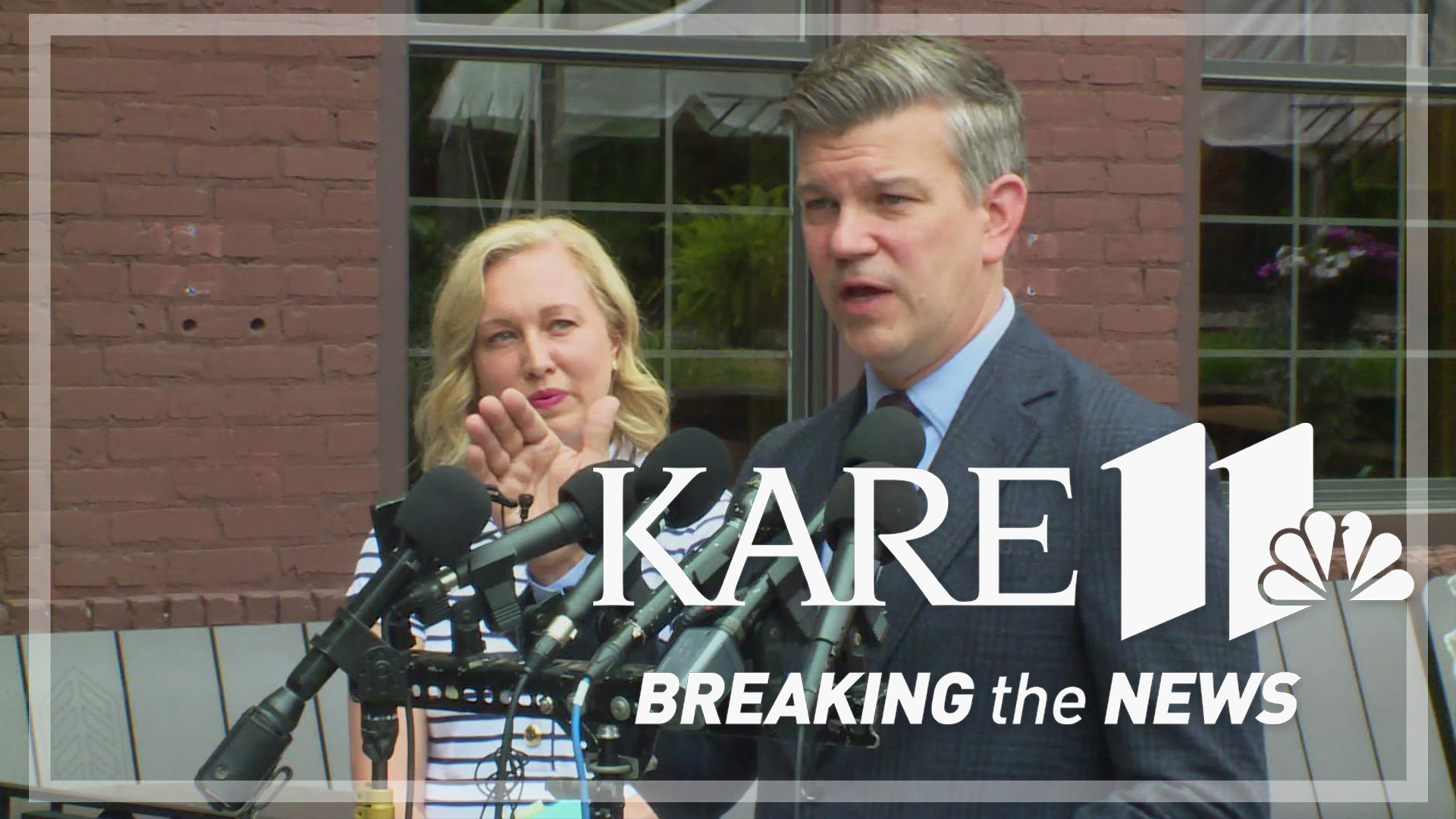MINNEAPOLIS — Days after implementing a new Minnesota law legalizing THC edibles and drinks, several big questions remain.
Democrats in the Minnesota House say they are working with the League of Minnesota Cities on important regulation and enforcement efforts which remain unresolved. They plan to reveal more information on the efforts on Thursday, nearly a week after the law went into effect.
Though that has led to a lot of confusion, the DFL team behind the bill say it was necessary because tackling the logistical issues during the legislative session would have likely stopped it in its tracks.
"Drawing attention to this change in the regulatory structure, I don't think would have heled the bill pass," said Minnesota House Majority Leader Ryan Winkler during a news conference on Tuesday.
Though the bill regulating - and legalizing - edibles and drinks containing small amounts of THC derived from hemp flew under the radar by design, Winkler said it was all done above board.
"It wasn't kept quiet, it was done publicly," Rep Winkler said. "We just didn't promote it because sometimes having more public attention amps up the level of political pressure that certain people in the other party may feel."
Video of a legislative conference committee hearing for the Omnibus Health and Human Services Bill, which included the law change, does include audio of the amended language legalizing the edibles. But moments after voting on the changes, it was unclear whether Republican Senator Jim Abeler realized what he had approved.
"That doesn't legalize marijuana, we didn't just do that did we?" Sen. Abeler said during the hearing.
“Oh, are you kidding? Of course you have," said DFL Rep. Tina Liebling of Rochester. "No, just kidding. We’ll do that next, OK?”
In interviews since, Senator Abeler has called for rolling back the law change, but other Republicans, including Senate Majority Leader Jeremy Miller stood behind the decision in a statement last week.
"We passed bipartisan legislation that would restrict many THC products after the 2018 Federal Farm Bill opened up a new market for these products. Our bill regulates the industry and keeps these products away from kids."
But because those new regulations weren't known widely until last week, the shape and marketing of the edibles has already prompted complaints and confusion.
"It is very clearly written in the law that it should not take the form of candy and animals," DFL Rep. Heather Edelson said. "So yes, there is going to be some problems in terms of how do we enforce this this."
Edelson, who authored the bill, says enforcement and other regulatory details, were among several issues intentionally left unaddressed in the legislation.
"I think if we had put in licensing structures and fees and did all of that, this would never have passed," she said.
Political Science and Law professor David Schlutz says that type of political strategy raises questions, but probably won't prompt a formal ethics complaint.
"It raises a lot of ethical questions and political questions about how the legislative process operates," he said. "If there is any ethical issue here whatsoever, it's the ethics on the parts of both bodies of the chamber in terms of not saying... or not telling the public, this is an important issue that we're addressing and we're not really going to inform the public about it."
Kent Erdahl: "Well, we know that legalization is very publicly popular, so guess they are probably just taking that calculated risk?"
David Schultz: "Right, and they are probably doing an ends justifies the means type of argument at this point. Ultimately we have well over a majority of Minnesotans who support legalization. Maybe this is a way that we can move on and get us towards that, because if we actually make this a full-blown debate, we might not be able to get there."
Watch more Breaking The News:
Watch all of the latest stories from Breaking The News in our YouTube playlist:

